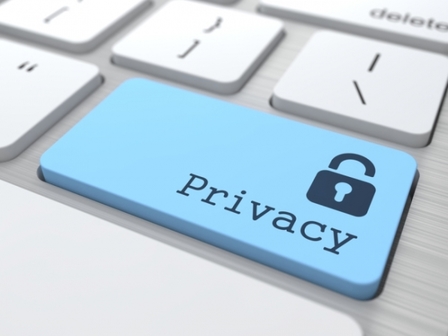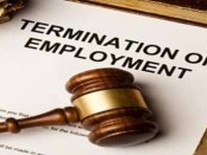
Examining the employer’s ability to monitor an employee’s use of the Internet and/or email communication and social media on company owned equipment is a significant concern for all employees.
There is no question that when it comes to social media, once an employee posts something in the public sphere, it significantly diminishes their expectation of privacy relating to that information. As such, it is commonplace that employers are permitted to access and examine this information, if it is done on company time or on a company device.
Employers may discipline employees for excessive use of company phones or computers even if the employee has not accessed inappropriate content.
In the case of Fairmont Royal York Hotel and U.N.I.T.E. H.E.R.E., Local 75 (Gonzales) (Re), an 18-year employee was dismissed after the employer discovered he had accessed the Internet during work hours for non-work related purposes for extended periods of time. The arbitrator made the following comments:
Spending extended periods of time on a computer accessing the Internet when one is supposed to be working is very serious misconduct.
She goes on to reiterate that the agreement between employer and employee governing the working relationship entails the notion that the employee will perform work, and violating that, justifies discipline.
In Fairmont, the arbitrator reinstated the grievor without compensation due to a number of mitigating factors, such as long service, a clean record, remorse etc. The employer must establish that the conduct actually harmed the employer’s interests.
Generally, the cases suggest that police employers can review workplace email accounts and Internet usage to prevent excessive personal use or access to inappropriate content. However, prior to conducting these searches, employers should develop and implement a policy that clearly states that workplace computers and phones will be monitored to prevent inappropriate use. Although these do not appear to be required in order for employers to discipline, having a policy in place strengthens the basis for monitoring and discipline in general.
There does not appear to be any authority that prohibits employers from, as practice, searching the contents of employee emails or computer files, however, there are some cases that suggest employees may have a privacy interest in their workplace computers and phones. (Lethbridge College). It should also be noted that this privacy interest is slight and can be diminished by an employer’s operational realities of the workplace (R v. Cole SCC).
Generally speaking, searches should be conducted when the employer has reasonable cause to do so.
R v Cole (Supreme Court):
Facts: A high school teacher was permitted to use his work-issued computer laptop for personal purposes, but a policy issued by the school board stated that “all data and messages generated on or handled by board equipment are considered to be the property of the school board”. This laptop was seized after a technician found partially nude photos of a female student. The photos were copied onto CD’s that were given to the police. These were viewed without a warrant, and the teacher was charged.
In determining whether his s. 8 rights were violated, the Court began by outlining that these rights are only engaged when the person has a reasonable expectation of privacy in the object or subject matter. To determine this, we look at:
The Court then states the more personal and confidential the information is, the more they will recognize a constitutionally protected privacy interest. Information found on computers is very personal.
The school board’s ownership of the computer was important, but not determinative.
HELD: the teacher did have a reasonable expectation of privacy in the contents of his workplace computer. The ownership of the laptop by the employer and the policies in place to govern its use diminished this right however.
This case goes further than arbitral decisions in protecting an employee’s privacy interests. Arbitrators have recognized that there may be situations where an employee does not have a reasonable expectation of privacy in their workplace computer.
The decision in Cole did not explicitly deal with the employer’s right to monitor computers issued to employees.
CONCLUSION:
There is no clear answer in relation to this, however, cases suggest that:
1. Employers are permitted to monitor the use of their own equipment, however, they should have reasonable cause to do so
2. Employers will have to keep in mind the nature of the alleged misconduct, the presence or absence of workplace policies, and the other considerations, which generally affect the appropriate nature of discipline.
3. Workplace policies should be carefully drafted and implemented.
4. Depending on the nature of the employer’s discipline, there may be a grievance to be filed in relation to the severity of such punishment.
There is no question that when it comes to social media, once an employee posts something in the public sphere, it significantly diminishes their expectation of privacy relating to that information. As such, it is commonplace that employers are permitted to access and examine this information, if it is done on company time or on a company device.
Employers may discipline employees for excessive use of company phones or computers even if the employee has not accessed inappropriate content.
In the case of Fairmont Royal York Hotel and U.N.I.T.E. H.E.R.E., Local 75 (Gonzales) (Re), an 18-year employee was dismissed after the employer discovered he had accessed the Internet during work hours for non-work related purposes for extended periods of time. The arbitrator made the following comments:
Spending extended periods of time on a computer accessing the Internet when one is supposed to be working is very serious misconduct.
She goes on to reiterate that the agreement between employer and employee governing the working relationship entails the notion that the employee will perform work, and violating that, justifies discipline.
In Fairmont, the arbitrator reinstated the grievor without compensation due to a number of mitigating factors, such as long service, a clean record, remorse etc. The employer must establish that the conduct actually harmed the employer’s interests.
Generally, the cases suggest that police employers can review workplace email accounts and Internet usage to prevent excessive personal use or access to inappropriate content. However, prior to conducting these searches, employers should develop and implement a policy that clearly states that workplace computers and phones will be monitored to prevent inappropriate use. Although these do not appear to be required in order for employers to discipline, having a policy in place strengthens the basis for monitoring and discipline in general.
There does not appear to be any authority that prohibits employers from, as practice, searching the contents of employee emails or computer files, however, there are some cases that suggest employees may have a privacy interest in their workplace computers and phones. (Lethbridge College). It should also be noted that this privacy interest is slight and can be diminished by an employer’s operational realities of the workplace (R v. Cole SCC).
Generally speaking, searches should be conducted when the employer has reasonable cause to do so.
R v Cole (Supreme Court):
Facts: A high school teacher was permitted to use his work-issued computer laptop for personal purposes, but a policy issued by the school board stated that “all data and messages generated on or handled by board equipment are considered to be the property of the school board”. This laptop was seized after a technician found partially nude photos of a female student. The photos were copied onto CD’s that were given to the police. These were viewed without a warrant, and the teacher was charged.
In determining whether his s. 8 rights were violated, the Court began by outlining that these rights are only engaged when the person has a reasonable expectation of privacy in the object or subject matter. To determine this, we look at:
- The subject matter of the search
- Whether the claimant had a direct interest in the subject matter
- Whether the claimant had a subjective expectation of privacy in the subject matter and
- Whether the subjective expectation of privacy was objectively reasonably
The Court then states the more personal and confidential the information is, the more they will recognize a constitutionally protected privacy interest. Information found on computers is very personal.
The school board’s ownership of the computer was important, but not determinative.
HELD: the teacher did have a reasonable expectation of privacy in the contents of his workplace computer. The ownership of the laptop by the employer and the policies in place to govern its use diminished this right however.
This case goes further than arbitral decisions in protecting an employee’s privacy interests. Arbitrators have recognized that there may be situations where an employee does not have a reasonable expectation of privacy in their workplace computer.
The decision in Cole did not explicitly deal with the employer’s right to monitor computers issued to employees.
CONCLUSION:
There is no clear answer in relation to this, however, cases suggest that:
1. Employers are permitted to monitor the use of their own equipment, however, they should have reasonable cause to do so
2. Employers will have to keep in mind the nature of the alleged misconduct, the presence or absence of workplace policies, and the other considerations, which generally affect the appropriate nature of discipline.
3. Workplace policies should be carefully drafted and implemented.
4. Depending on the nature of the employer’s discipline, there may be a grievance to be filed in relation to the severity of such punishment.

 RSS Feed
RSS Feed





